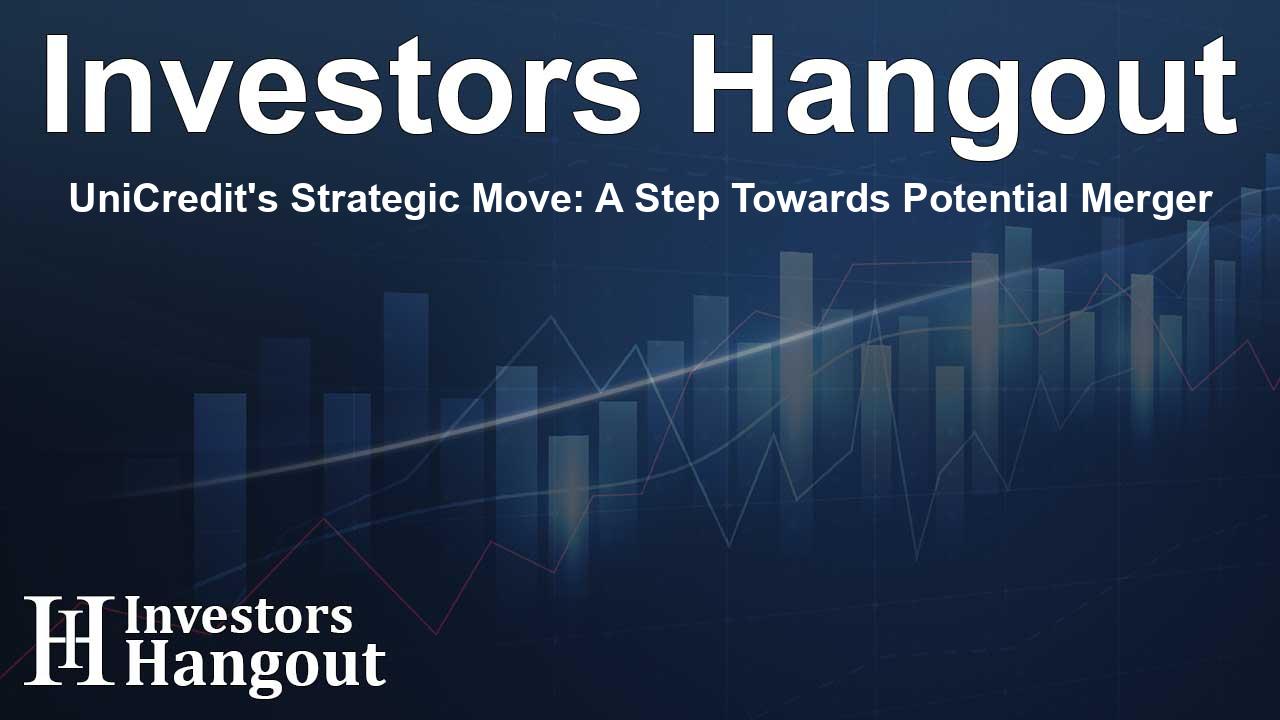UniCredit's Strategic Move: A Step Towards Potential Merger

UniCredit's Strategic Stake in Commerzbank
UniCredit has recently made headlines with its investment in Commerzbank, initiating discussions that could pave the way for potential mergers in the European banking sector. Chief Executive Andrea Orcel stated that this 9% stake could be a significant step towards exploring deeper collaborations.
The Vision for a Partnership
In an exclusive interview with a major television network, Orcel expressed that this move holds intrinsic value beyond just a potential merger. He emphasized the importance of larger banking institutions to ensure competitive stability and service efficiency across Europe.
Understanding the Market Potential
With the ongoing fragmentation within the German financial market, Orcel is optimistic about the opportunities that consolidation can offer. He believes a combination of their strengths could deliver substantial advantages to customers and stakeholders alike.
The History of Interests
UniCredit's interest in the German banking landscape is not new. The firm has maintained a presence in Germany since its acquisition of HVB in 2005, marking its ambition to strengthen its influence in this key market.
A Historical Perspective on Combining Forces
Over the years, UniCredit has explored various avenues for a possible merger with Commerzbank, recognizing the potential cost savings and operational efficiencies that could arise from such a partnership.
The Acquisition Journey
Orcel recounted how UniCredit began acquiring shares in Commerzbank amidst growing speculation of the German government's intention to minimize its 16% shareholding. Their proactive approach ultimately led to successfully raising their stake from 4.5% to 9% following an accepted offer.
Looking Ahead
This upward movement in stake signifies UniCredit's commitment to a long-term strategy that could reshape the competitive landscape of banking. As they engage with various stakeholders, the possibility of a merger remains an ongoing topic of exploration.
Frequently Asked Questions
What does UniCredit's stake in Commerzbank mean?
It signifies a strategic move to explore potential mergers and enhance their competitive standing in the European banking market.
How much of Commerzbank does UniCredit own now?
UniCredit currently owns a 9% stake in Commerzbank following its recent acquisition.
Why is there a need for larger banks in Europe?
Larger banks can offer enhanced services, better risk management, and increased operational efficiencies that are crucial for competitive stability.
When did UniCredit start purchasing Commerzbank shares?
UniCredit began acquiring shares over the summer as speculation about the government's sale of its stake increased.
What could a merger with Commerzbank mean for customers?
A merger could provide customers with a broader range of services and improved capabilities, enhancing their banking experience overall.
About The Author
Contact Dominic Sanders privately here. Or send an email with ATTN: Dominic Sanders as the subject to contact@investorshangout.com.
About Investors Hangout
Investors Hangout is a leading online stock forum for financial discussion and learning, offering a wide range of free tools and resources. It draws in traders of all levels, who exchange market knowledge, investigate trading tactics, and keep an eye on industry developments in real time. Featuring financial articles, stock message boards, quotes, charts, company profiles, and live news updates. Through cooperative learning and a wealth of informational resources, it helps users from novices creating their first portfolios to experts honing their techniques. Join Investors Hangout today: https://investorshangout.com/
The content of this article is based on factual, publicly available information and does not represent legal, financial, or investment advice. Investors Hangout does not offer financial advice, and the author is not a licensed financial advisor. Consult a qualified advisor before making any financial or investment decisions based on this article. This article should not be considered advice to purchase, sell, or hold any securities or other investments. If any of the material provided here is inaccurate, please contact us for corrections.
